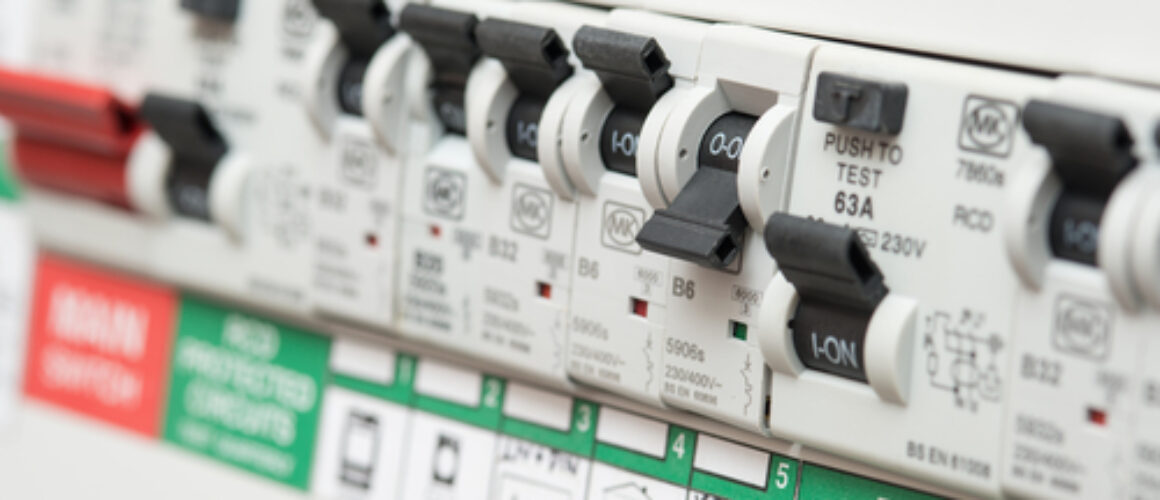The Vital Role of Residual Current Devices For Electrical Safety
Electrical safety is a critical concern in both residential and commercial environments. Ensuring that electrical systems are safeguarded against potential hazards is essential for protecting lives and property. Residual Current Devices (RCDs) play an indispensable role in this regard. These devices are designed to detect and mitigate the risk of electric shock and fire hazards by promptly disconnecting the electrical supply when an imbalance is detected. This blog will explore the essential function of RCDs, the different types available, their applications, and the importance of regular testing and maintenance.
Understanding Residual Current Devices (RCDs)
An RCD is a safety device that monitors the electric current flowing through a circuit. It detects any imbalance between the live and neutral conductors, which can occur when current flows through an unintended path, such as through a person who has come into contact with a live part. When such an imbalance is detected, the RCD rapidly disconnects the circuit, significantly reducing the risk of electric shock and electrical fires.
Essential Functions of RCDs
1. Detecting Electric Shocks
The primary function of an RCD is to protect against electric shocks. When a person comes into contact with a live conductor, the RCD detects the resulting current imbalance and disconnects the electrical supply within milliseconds. This rapid response time is crucial for minimising the severity of electric shocks and preventing potentially fatal injuries.
2. Preventing Electrical Fires
RCDs also play a vital role in preventing electrical fires. Faulty wiring, damaged insulation, or malfunctioning appliances can cause current to leak to the ground, creating a potential fire hazard. By detecting these leakage currents and disconnecting the circuit, RCDs help to prevent the conditions that could lead to electrical fires.
Types of Residual Current Devices
There are several types of RCDs available, each designed for specific applications and providing varying levels of protection. Understanding the differences between these types is essential for selecting the appropriate RCD for a given installation.
1. Fixed RCDs
Fixed RCDs are installed in the consumer unit (distribution board) and provide protection for individual or groups of circuits. They offer comprehensive protection across the entire installation and are ideal for safeguarding multiple circuits in residential and commercial properties.
2. Socket-Outlet RCDs
Socket-outlet RCDs are integrated into individual power outlets and provide protection for appliances plugged into those outlets. These RCDs are particularly useful for providing additional protection in areas where portable appliances are frequently used, such as kitchens, workshops, and outdoor areas.
3. Portable RCDs
Portable RCDs are plug-in devices that can be used with any standard socket-outlet. They are ideal for temporary or mobile applications, providing a convenient solution for protecting appliances and equipment used in various locations. Portable RCDs are often used on construction sites, for outdoor events, and for DIY projects.
4. RCDs with Overcurrent Protection (RCBOs)
RCBOs combine the functions of an RCD and a circuit breaker, providing protection against both earth leakage currents and overcurrent conditions (overload and short circuit). This dual protection makes RCBOs a versatile and efficient solution for safeguarding individual circuits.
Applications of RCDs
RCDs are used in a wide range of applications to enhance electrical safety. Some common applications include:
- Residential Properties: RCDs are essential for protecting occupants from electric shocks and reducing the risk of electrical fires in homes. They are typically installed in the consumer unit and provide protection for various circuits, including lighting, power outlets, and appliances.
- Commercial Buildings: In commercial environments, RCDs protect employees and customers from electrical hazards. They are used to safeguard circuits powering office equipment, lighting, HVAC systems, and more.
- Industrial Facilities: Industrial settings often involve complex electrical systems with high-power machinery and equipment. RCDs provide crucial protection for workers and help prevent electrical fires caused by faults in industrial equipment.
- Construction Sites: Portable RCDs are widely used on construction sites to protect workers using power tools and equipment. They offer flexible and temporary protection in environments where electrical systems are frequently modified.
Importance of Regular Testing and Maintenance
While RCDs are highly effective in enhancing electrical safety, their performance can degrade over time due to wear and tear, environmental factors, or mechanical damage. Regular testing and maintenance are essential to ensure that RCDs function correctly and provide the expected level of protection.
1. Regular Testing
It is recommended to test RCDs at least every six months to verify their operation. Most RCDs have a test button that allows users to simulate a fault condition and check if the device trips as expected. Regular testing helps to identify any issues with the RCD and ensures that it will function correctly in the event of a real fault.
2. Professional Inspections
In addition to routine testing, it is advisable to have RCDs inspected by a qualified electrician periodically. Professional inspections can identify potential problems that may not be evident during routine testing, such as loose connections, damaged components, or issues with the overall electrical system.
3. Prompt Replacement
If an RCD fails a test or inspection, it should be replaced promptly. Continuing to use a faulty RCD compromises electrical safety and increases the risk of electric shock and fire hazards.
Conclusion
Residual Current Devices are a vital component of modern electrical safety. By detecting and mitigating the risk of electric shock and fire hazards, RCDs provide essential protection for both residential and commercial environments. Understanding the different types of RCDs, their applications, and the importance of regular testing and maintenance is crucial for ensuring their effectiveness.
To enhance the safety of your electrical installations, consider incorporating RCDs from Electrical Discounted Supplies. Visit our website to explore our range of high-quality RCDs and take the first step towards a safer electrical system.




